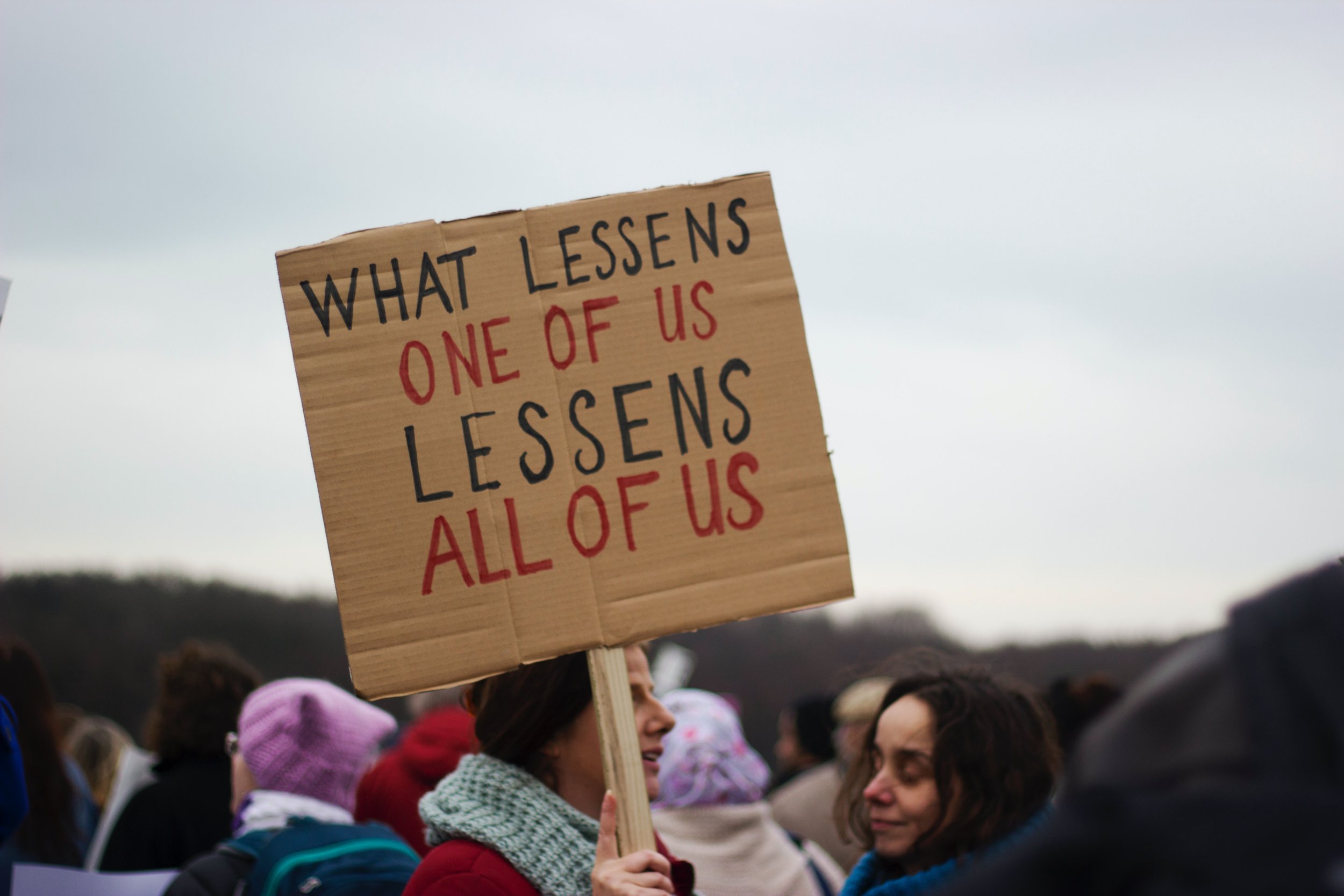Tracking New Trends in the Labor Movement
FUTURE OF WORK SERIES:
Among younger workers, labor unions are gaining popularity. Steven Greenhouse explains how this movement has become more democratic than it was a generation ago, and he provides policy recommendations for the future of work.
We Don’t Need Permission: How Black Business Can Change Our World
Eric Collins, founder of Impact X Capital and host of the UK The Money Maker, discusses how black entrepreneurship and business ownership is a pathway to black empowerment. He gives us his advice on how we can be disruptive visionaries and boldly create the world we want to see.
College Attainment: A Right and a “Right-Fit” Approach for Underrepresented Students
College completion drives economic outcomes for Black and Latinx students in the US. Students from vulnerable communities can realize their college goals with “right fit” educational experiences. Lesley Poole, CEO, and Vincena Allen, Chief Growth Officer, of The SEED Foundation discuss their approach to ensuring college success for underrepresented students.
Ambiguous Loss: Giving a Name to Global Disappearances
Climate change, natural resources depletion, COVID-19 pandemic, Russia–Ukraine war, and the possibility of a nuclear accident are some of the world-wide crises that we are facing. Some say these potential challenges underlie a mental health crisis. True for some, but for the majority of us, it is not an illness, but rather, a crisis of ambiguity and loss.
Digital Transformation in Ukraine: Before, During, and After the War
THE IMPACT OF THE WAR IN UKRAINE SERIES:
Despite the war disrupting many of Ukraine’s development goals, Valeriya Ionan, the Deputy Minister for Eurointegration, outlines the digital innovations born out of conflict and how the Ministry of Digital Transformation is accelerating the digitalisation of Ukraine.
Ukrainian Refugee Crisis at the Romanian Border: First Responders – The Jesuit Refugee Service Romania
THE IMPACT OF THE WAR IN UKRAINE SERIES:
As the war in Ukraine continues, millions of people have been displaced from their homes. Stefan Leonescu discusses the response of the Jesuit Refugee Service Romania to the Ukrainian Refugee Crisis, and details the challenges encountered with international humanitarian law and the areas for improvement.
Leadership Lessons from Ukraine
THE IMPACT OF THE WAR IN UKRAINE SERIES:
The hundreds, the partisans, the barriers — these and more make up the “secret sauce” that is helping Ukraine win. Robert Homans, who worked in Ukraine, describes some of their tactics and what he hopes will happen after the war.
Leadership is Not Morally Neutral: Supporting LGBTQ Youth
The recent politicization of LGBTQ+ youth is a reckless abuse of power without regard to the child casualties. Harvard Professor Tim McCarthy and Sam Ames from The Trevor Project discuss the paradox of progress, the current culture war, the struggles and accomplishments of the LGBTQ+ community, and the continued need for resistance, resilience, and advocacy.
The ERA: A New Foundation for Equality in the United States
In 21st century America, the battle for gender equality persists. In nearly a century after it was first proposed in Congress, the Equal Rights Amendment’s (ERA) simple guarantee that “Equality of rights under the law shall not be denied or abridged by the United States or by any State on account of sex” still is not codified in the US Constitution. At a time when women’s rights are under assault, passing the ERA is more urgent than ever. Enshrining the ERA in the constitution may well depend on the composition of the next Congress and the urgency of support by the American people.
The Preemption Prescription: Combatting Health Disparities Caused by State Pharmaceutical Restrictions
More and more, the provision of healthcare is crossing state lines. Allison Whelan argues that a fractured state-by-state approach to healthcare regulation exacerbates disparities among various populations. As a partial solution, she discusses whether Congress should amend the Food, Drug, and Cosmetic Act to pre-empt state pharmaceutical bans and restrictions.
State Preemption and the Fracturing of America
Over the last decade, local leaders have passed myriad ordinances — from increasing minimum wages to gun safety regulations — only to have conservative state legislators nullify them. David Toscano, provides ideas for controlling state preemption without letting states become a patchwork of local laws.
India’s Zero Fatality Corridors: An Empathetic and Nuanced Solution for the Global Road Crash Epidemic
The knowledge, practices and methods pertaining to road safety have primarily evolved from the Western world. This knowledge is out of touch with the existing situation and realities specific to low- and middle-income countries. Their ineffectiveness translates into crashes, injuries, and deaths that could be avoided had they been adapted in a context-specific manner. Indian non-profit, SaveLIFE Foundation, through its scientific, quantifiable and well-documented Zero Fatality Corridor (ZFC) Model, makes a compelling case for considering cultural empathy to adapt standard methods and practices to a local context. By significantly improving the efficacy related to rule adherence, crash avoidance, faster medical assistance and greater engagement, the Model has led to a decline in crashes, injuries, and fatalities, thereby saving more lives across roads in India.
Shrink It and Pink It: Gender Bias in Product Design
Not accommodating the female body in the design of products has led to a world that is less hospitable and more dangerous for women. Karen Korellis Reuther, 2022 ALI Senior Fellow, explores how we are excluding half of humanity in our built world and how we can deliver design justice for women.
A Green Lining to a Global Crisis?
The world-wide spike in energy prices, instigated by Russia’s invasion of the Ukraine, has resulted in calls to “drill baby drill” by some, and celebrated by others as an accelerant to efforts to transition to a greener future. Who is right? Are they both right to some degree? Joseph Aldy, Professor at Harvard Kennedy School and former Special Assistant to the President for Energy and Environment, gives his views on our current energy crisis.
A Pragmatic Approach to Connecting Social Innovators and Investors: Moonshot in Baltimore
Social innovators and entrepreneurs of color often highlight challenges they face in making connections with funders, champions, and sponsors. These result in barriers that hamper development and advancement of their creative work. Dr. John Brothers, President of the T. Rowe Price Foundation, talks about the evolution of the Foundation’s approach to philanthropy, leading to the creation of Moonshot, an innovative, multi-year program designed to bring Baltimore’s entrepreneurs of color together with the global investment management firm’s network of investors and sponsors.
Advise and Consent as the Climate Changes
Anyone who is interested in a presidential appointment must navigate a complicated process in order to be confirmed by the Senate. Sarah Bloom Raskin explains what it entails and tells why she withdrew her name from consideration for a post on the Federal Reserve in 2022.
America’s Secret Weapon for Global Competitiveness is Diverse Tech Talent in the “Last Mile”
OPINION COMMENTARY:
As the United States falls behind other developed nations in building a workforce that fuels competitive innovation, Ruthe Farmer, founder and CEO of a non-profit fund focused on diversity and inclusion in tech proposes a plan with a high return on investment: low-income students in their last mile of earning a technical degree.
Teens, Social Media, and Mental Health: It’s Not As Clear Cut As You Think
OPINION COMMENTARY:
Emily Weinstein and Carrie James, researchers from Harvard’s Graduate School of Education, encourage parents and caregivers to assess when and why kids might be most vulnerable to social media – and how social media may also make teens feel connected and supported. Effective interventions require “tuning into the particular” and challenging assumptions.
Elevating Qualitative Data in Impact Performance Reporting
Impact performance reporting has been too influenced by mainstream financial reporting, trying to boil everything down to numbers, metrics and scores. Sarah Gelfand and Laura Budzyna, impact specialists, highlight the critical importance of also integrating qualitative information so the field does not lose the nuance that would ultimately make it better impact investors.
Loaded Politics: What Gun Politics Can Tell Us About U.S. Democracy
OPINION COMMENTARY:
Jennifer Carlson, a professor researching the significance of guns in American society, interviews gun sellers across the country and discovers a “democratic crisis” of political culture. She learns that their attitudes range beyond the National Rifle Association’s agenda.




















